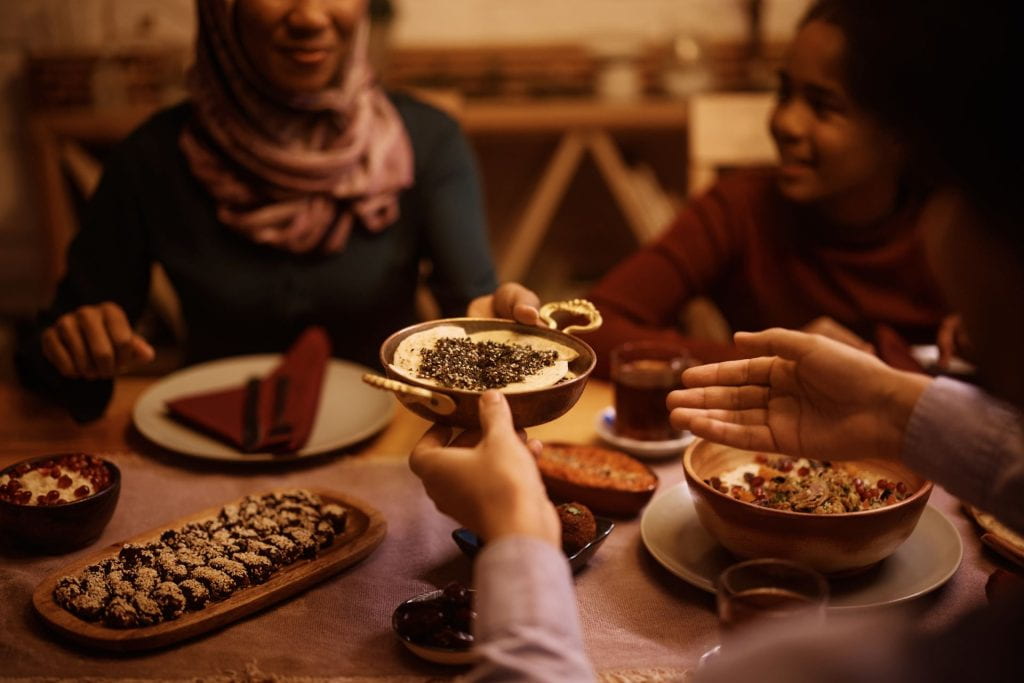 As a nonprofit professional, I discovered that the world of fundraising and philanthropy is filled with stories of everyday people making positive changes in their community and establishing a legacy that transcends their own lives. The Muslim Philanthropy Initiative published a study on Motivations of Giving, which dives into reasons why American Muslims are philanthropically engaged. This in-depth study highlights just how strong American Muslim charitable contributions are within the fabric of American philanthropy. As a faith-based giving demographic, Muslims consider the religious and spiritual incentives of giving when deciding where to give, how to give, and even when to give.
As a nonprofit professional, I discovered that the world of fundraising and philanthropy is filled with stories of everyday people making positive changes in their community and establishing a legacy that transcends their own lives. The Muslim Philanthropy Initiative published a study on Motivations of Giving, which dives into reasons why American Muslims are philanthropically engaged. This in-depth study highlights just how strong American Muslim charitable contributions are within the fabric of American philanthropy. As a faith-based giving demographic, Muslims consider the religious and spiritual incentives of giving when deciding where to give, how to give, and even when to give.
In my career as Director of Development, my work is based on bridging the gap between individuals who have the capacity or desire to give and the organization whose work is meaningful to them. The American Muslim philanthropic scene is thriving. American Muslim nonprofits are brimming with even more potential as local organizations professionalize their efforts in not only fundraising but also overall management of their programs, personnel, and operations. Donors are increasingly seeking standards of transparency, accountability, and ihsan, an Arabic word used to describe the excellence and beautification of behavior.
In a recent interview for Religion News, I was asked how fundraising and development professionals in American Muslim nonprofits navigate their work during Islam’s most sacred time of the year. Where is the balance between one’s own spiritual life and work obligations in Ramadan? What happens when everyone behind the scenes and on public platforms is fasting during the day and praying at night?
Ramadan not only marks the month of fasting and worship, but it is also a time in which the Muslim community is seeking out charitable opportunities. I shared how Rabata, the organization I work for, commits to strategizing ahead of time, making detailed plans, and keeping a higher purpose in mind. Our work as American Muslim nonprofit professionals is to ensure that the people who want to give during a heightened season of faith-based giving have clear, easy, and even fun ways to support the work they love.
For example, nonprofits recognize philanthropic trends during Giving Tuesday, study higher giving reports during the final days of the year and create fundraising strategies months in advance. It is important to give faith-based giving seasons the same thoughtfulness and attention, especially as spiritual incentives are highlighted. Faith-based giving incentives are just as significant as faith-based fundraising incentives.
The Prophet Muhammad, peace and blessings be upon him, was reported to say:
Whoever guides someone to goodness will have a reward like one who did it.”
Similar to how investors are incentivized to add to their stock portfolios for potential dividends, Muslim donors look forward to the long-term reward that goes beyond their lifespan. In general, faith-based fundraising and philanthropy relies on heritage text as a foundational component of educating donors and inviting philanthropic contributions. For Muslims, verses of the Quran, prophetic narratives, and wisdom from Islamic scholars across centuries are used to share the benefits of giving. The well-known thirteenth-century poet, Muslim jurist, Islamic scholar, and theologian Jalaluddin Rumi wrote the following:
Before death takes away what you are given, give away what there is to give.
Aside from the obligatory 2.5% of one’s saved annual wealth, which is categorized as zakat, all other giving is open and encouraged for Muslims. This type of broad, general giving is considered sadaqa – a type of contribution that comes from within and goes beyond the legal obligation of donating. Muslim scholars in the field of Islamic spirituality discuss the spiritual dimensions of sadaqa because this type of giving can become hindered by characteristics such as greed or stinginess. Donating can be used as a spiritual exercise to help a person move toward more favorable characteristics like generosity and benevolence.
Dr. Tamara Gray, a Minnesota-based American scholar of Islam and Executive Director of Rabata, explains that sadaqa can go beyond monetary donations. There is sadaqa of time, treasure, and talent. All types of voluntary giving can foster spiritual experiences. As an American Muslim, I cherish spiritual moments that honor the practical application of my faith values and help uplift the work dear to my heart.
About the Author

Afshan Malik currently serves as Rabata’s Director of Development, and previously as Program Manager from 2017 – 2019. She holds a BA in English Language and Literature from Northeastern Illinois University and an MA in Nonprofit Management from the University of Houston-Downtown. She graduated in 2020 as part of the first Ribaat Academic Institute cohort for the Islamic Studies Teacher Certificate.
In nonprofit work, Afshan always seeks opportunities to expand her skillset, through which she benefits and leads Rabata’s fundraising strategies. With this objective in mind, she received certificates in social media marketing management and in Fundraising Management from the Indiana University Lilly Family School of Philanthropy.
When not researching grant proposals and writing reports, Afshan likes to indulge in Dr. Pepper, afternoon naps, and historical fiction. She is a Chicago native but currently resides in Houston, Texas with her husband and five children. She is the author of a young adult novel titled Pieces, which tells the story of a close-knit family dealing with the struggles of adolescence, mental illness, and change, published by Daybreak Press.

Leave a Reply